The allure of exotic pets captivates many, yet owning such unique creatures is heavily regulated in the US. Laws vary by state, but common restrictions exist to protect public safety and preserve wildlife. Many exotic animals pose dangers due to their unpredictable nature or potential diseases. Regulatory bodies aim to balance individual freedoms with the need to protect ecosystems and public health. Understanding these laws is crucial for potential pet owners. As we explore this list, it becomes clear why some animals are best left in their natural habitats or in the care of licensed professionals.
1. Lions

Lions, known as the kings of the jungle, are majestic creatures that thrive in their natural habitats, such as the savannahs of Africa. Keeping a lion as a pet is prohibited across the US due to their sheer size, strength, and unpredictable behavior. These apex predators require vast territories to roam and hunt, making captivity unsuitable for their wellbeing. Furthermore, lions pose significant risks to human safety due to their natural instincts. To learn more about conservation efforts, visit World Wildlife Fund, which advocates for their protection and conservation in the wild.
2. Tigers
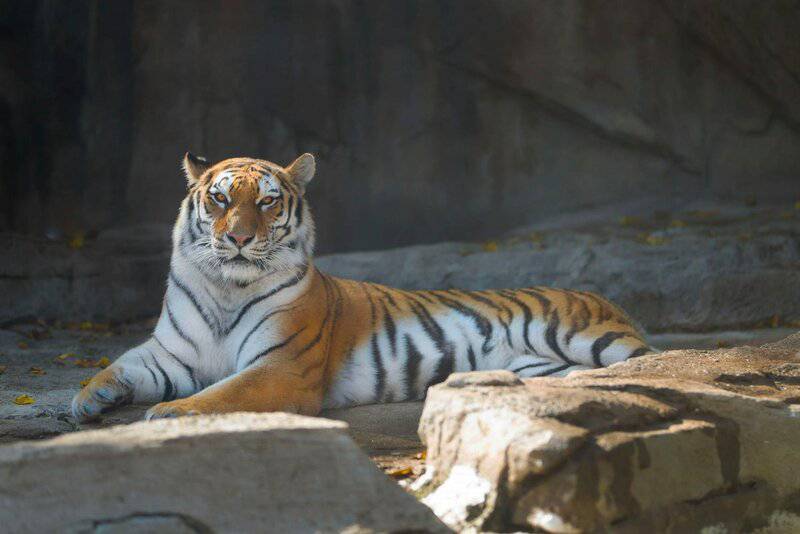
Tigers, among the world’s most iconic big cats, are prohibited as pets due to their immense size and formidable strength. These solitary animals require large territories to express their natural behaviors, making domestic environments unsuitable. In the US, laws strictly ban private ownership, aiming to protect both humans and tigers from potential harm. Tigers are also protected under international agreements, highlighting their status as an endangered species. Organizations like the Panthera work tirelessly to ensure these magnificent creatures remain in their natural habitats, safeguarding their future.
3. Bears
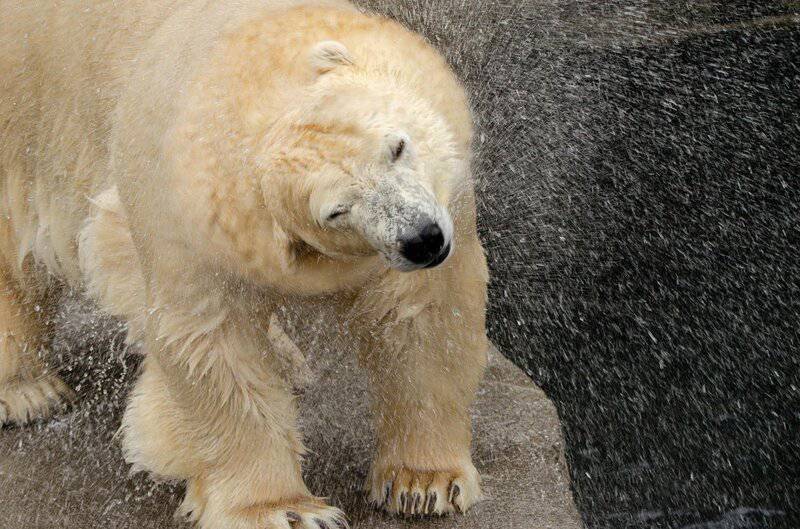
Bears, with their immense size and power, are unsuitable as pets and are legally restricted across the US. Known for their strength and unpredictable nature, bears require expansive territories to thrive, far beyond what a private owner can provide. Their natural behaviors and dietary needs make domestic life both impractical and dangerous. These formidable creatures are best appreciated in their natural environments, such as national parks. For more information on safely observing bears and understanding their role in the ecosystem, visit the National Park Service guidelines.
4. Wolves
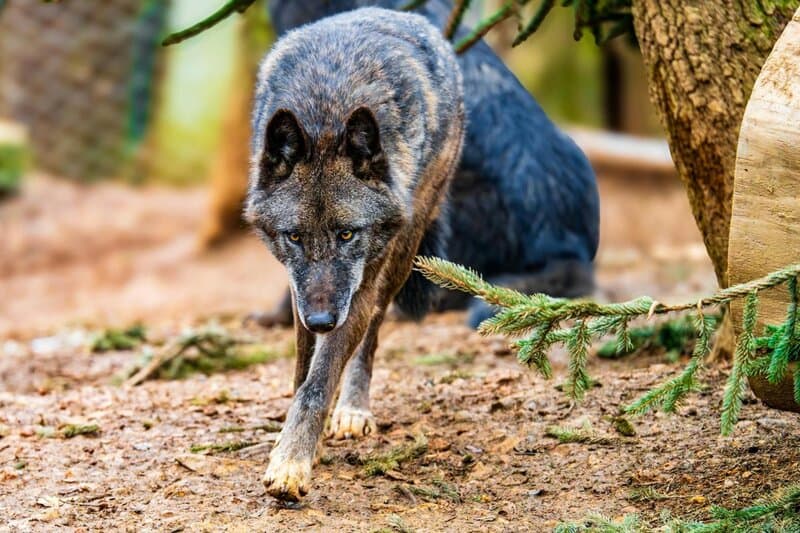
Wolves, renowned for their complex social structures and pack dynamics, are banned as pets in the US due to their inherently wild nature. Unlike domestic dogs, wolves retain instincts that can lead to unpredictable behavior in captivity. Their need for a pack environment and large roaming areas makes them unsuitable for home life. Legal restrictions aim to protect both the animals and the public. Organizations like the International Wolf Center emphasize the importance of conserving wolves in the wild, where they play a crucial role in maintaining ecological balance.
5. Elephants
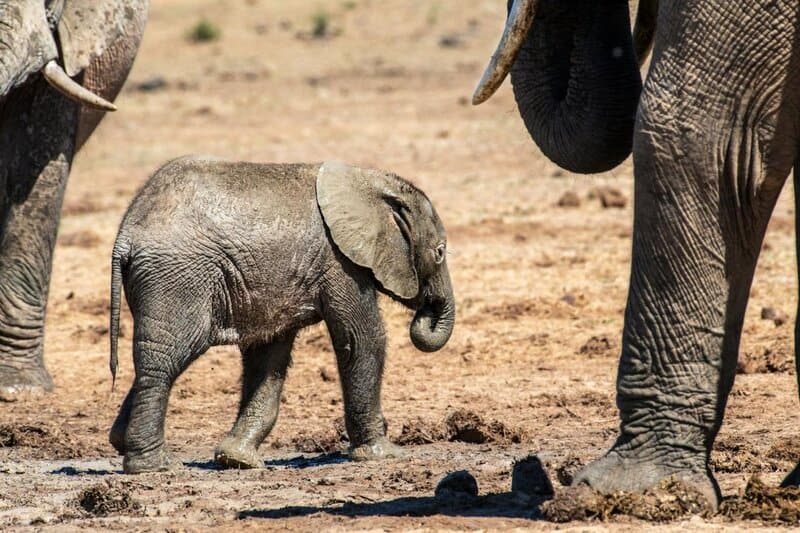
Elephants, known for their intelligence and social complexity, are not legal pets in the US due to their immense size and intricate needs. These gentle giants require vast spaces and social interactions with their herd to thrive, making captivity in a typical home environment impractical and unethical. Their care demands extensive resources and expertise beyond the capacity of private individuals. To support elephant conservation and welfare, organizations like the Save the Elephants are dedicated to ensuring these majestic creatures live in their natural habitats, free from human-imposed constraints.
6. Monkeys
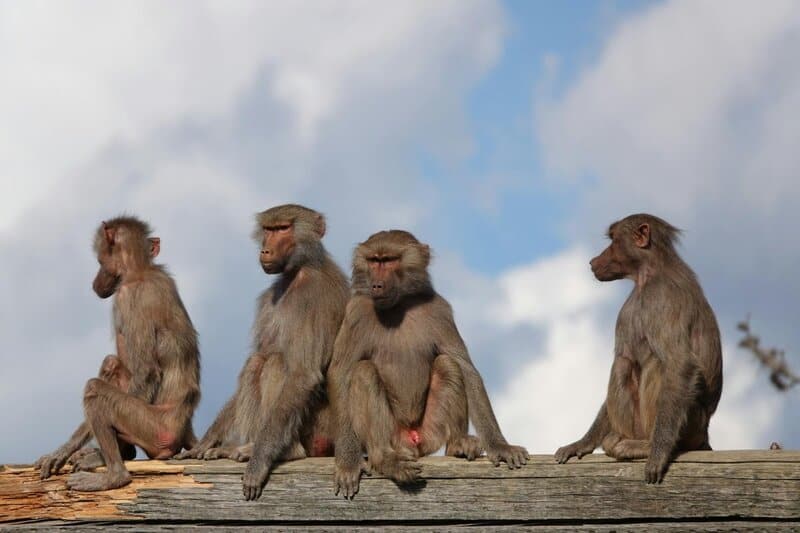
Monkeys, with their high intelligence and complex social structures, pose significant challenges as pets. Legal restrictions reflect the ethical concerns of keeping such primates, whose intricate social and dietary needs are difficult to meet in a home environment. Monkeys require constant social interaction and specialized care, and their behaviors can be unpredictable and potentially destructive. These factors contribute to legal bans on private ownership. For an in-depth understanding of primate needs and behaviors, refer to academic studies available through NCBI, which provide insights into the complex lives of these fascinating animals.
7. Alligators
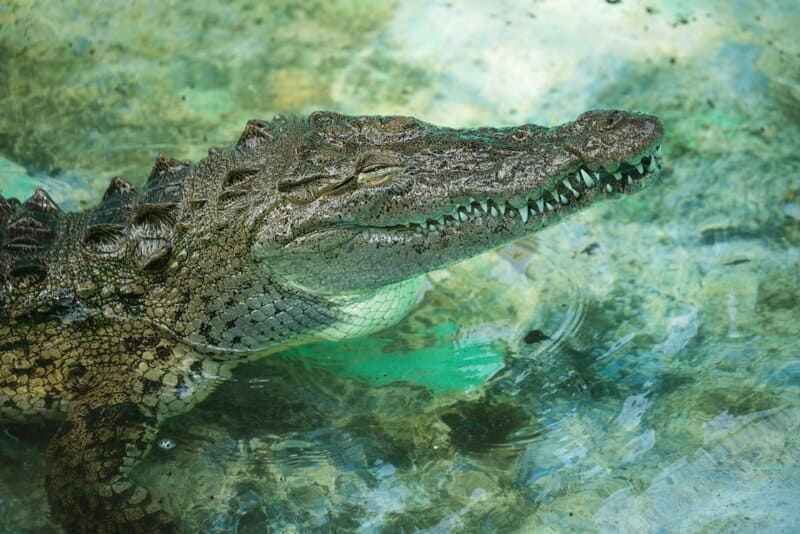
Alligators, notorious for their size and aggression, are illegal to keep as pets in many states due to their specific habitat requirements and potential danger to humans. These powerful reptiles need large bodies of water and ample space to thrive, conditions that are difficult to replicate in a domestic setting. Their natural predatory instincts make them unsuitable companions, posing significant risks to human safety. For more information on alligator regulations and their protection, check the guidelines from various state wildlife agencies, such as Florida Fish and Wildlife Conservation Commission.
8. Crocodiles
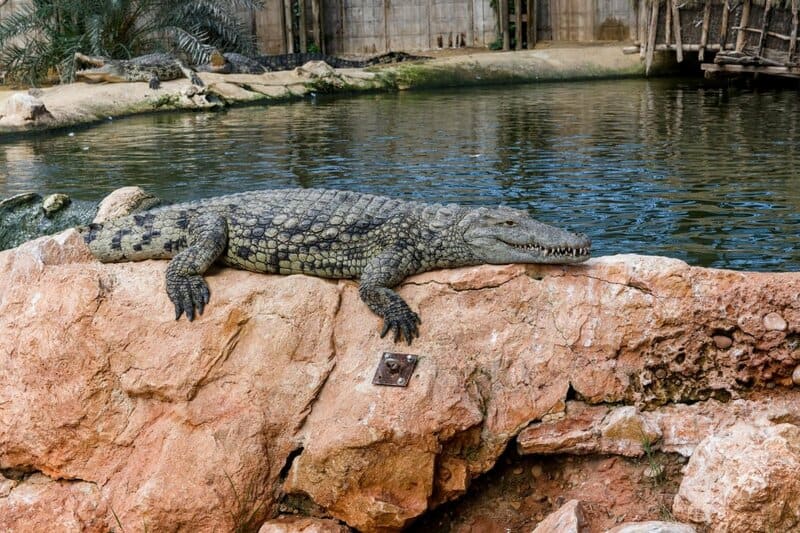
Crocodiles, known for their aggressive nature and formidable strength, are prohibited as pets due to their need for specialized environments and potential danger to humans. These ancient reptiles thrive in specific aquatic habitats, requiring ample space and water to accommodate their lifestyle. Their predatory instincts and unpredictable behavior make them unsuitable for domestic settings. Zoological studies, such as those from ZSL Publications, highlight the complex needs and behaviors of crocodiles, underscoring why they belong in the wild or in professionally managed environments.
9. Poison Dart Frogs
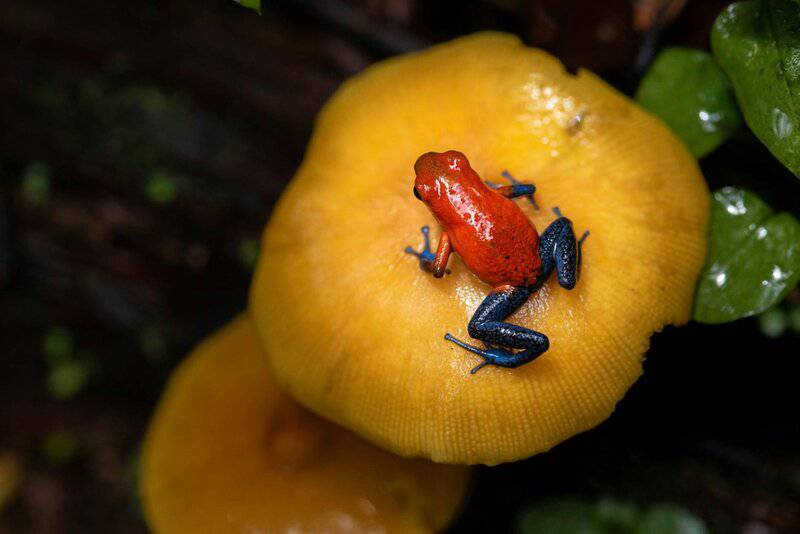
Poison dart frogs, celebrated for their vibrant colors, are banned as pets primarily due to their toxicity. These small amphibians produce toxins through their skin, posing a significant risk to humans if handled improperly. Additionally, many poison dart frog species are classified as threatened, necessitating legal protections to support their conservation. Their delicate environmental needs further complicate captive care. For more insights into these fascinating creatures and their conservation, visit resources from The British Herpetological Society, which provides valuable research and information about amphibian welfare and ecology.
10. Venomous Snakes
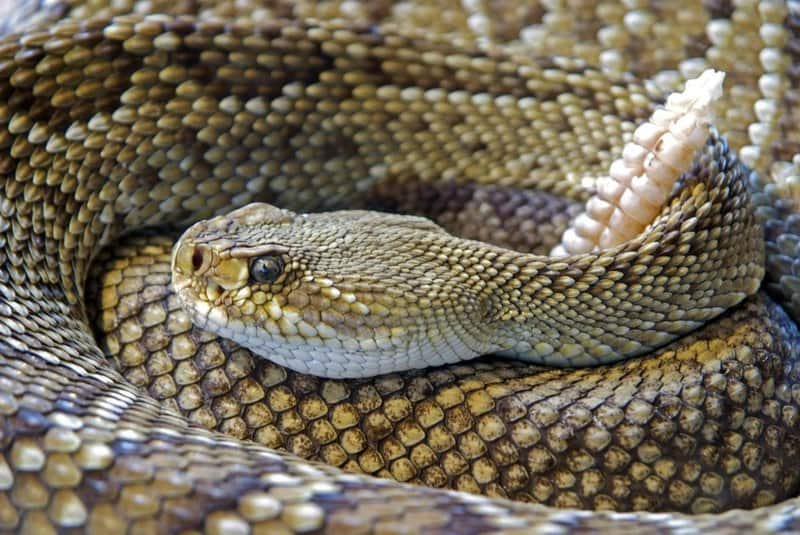
Venomous snakes are prohibited as pets due to the significant danger they pose to humans. Their venom can cause serious injury or death, necessitating specialized handling and containment that most private individuals cannot provide. The challenges of maintaining proper care and safety standards make them unsuitable for domestic settings. Legal restrictions aim to prevent accidents and ensure public safety. For those interested in learning more about these intriguing reptiles, herpetology journals such as the Journal of Herpetology offer comprehensive studies and insights into their behavior, ecology, and care.
11. Komodo Dragons

Komodo dragons, the world’s largest lizards, are banned as pets due to their formidable size, carnivorous diet, and potential danger to humans. These powerful reptiles can grow up to 10 feet long and require extensive space and resources to meet their dietary and habitat needs. Their natural predatory behavior poses significant risks, making them unsuitable for home environments. Conservation efforts, such as those by the Komodo Survival Program, focus on protecting these magnificent creatures in their native habitats, ensuring their survival and well-being in the wild.
12. Great Apes
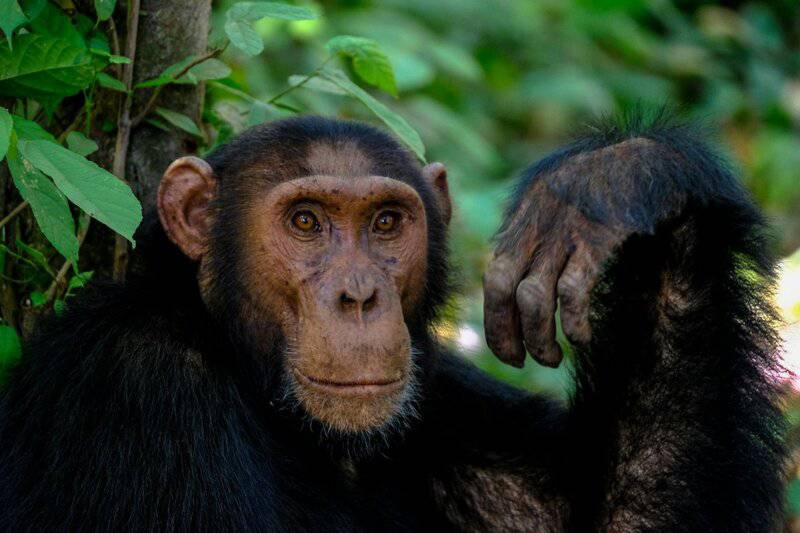
Great apes, such as chimpanzees, gorillas, and orangutans, are prohibited as pets due to their extraordinary intelligence and complex social needs. These primates require rich social environments to thrive, mirroring their intricate interactions in the wild. Keeping great apes in captivity can lead to psychological distress and behavioral issues. Legal restrictions are in place to protect both the animals and the public. For more information on the advocacy and conservation of great apes, organizations like the Jane Goodall Institute work tirelessly to promote their welfare and protect their natural habitats.
13. Hyenas
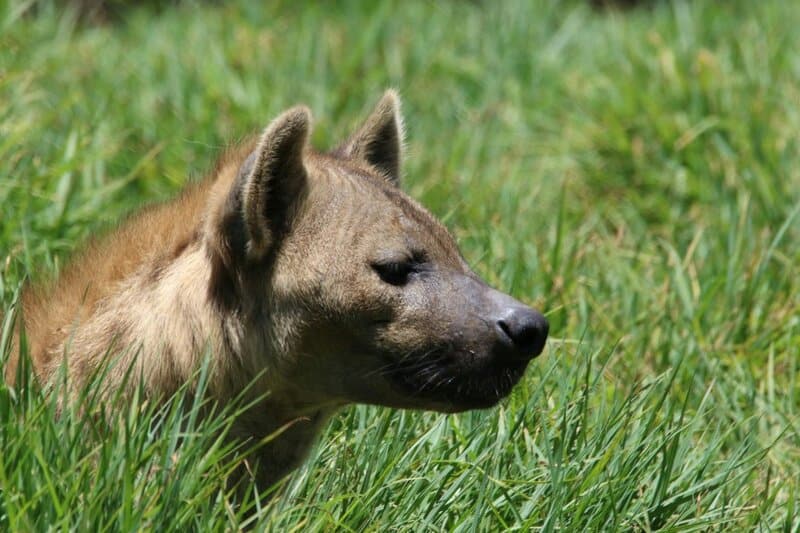
Hyenas, often misunderstood, are illegal as pets due to their wild nature and complex social structures. Known for their strong social bonds and matriarchal societies, hyenas exhibit behaviors that are challenging to replicate in captivity. Their powerful jaws and instinctive hunting skills further underscore the potential dangers of domesticating them. Legal prohibitions help protect both humans and these fascinating carnivores. For more insights into their intriguing lives, wildlife documentaries such as those available on BBC Earth provide captivating glimpses into the world of hyenas in their natural habitats.
14. Bats
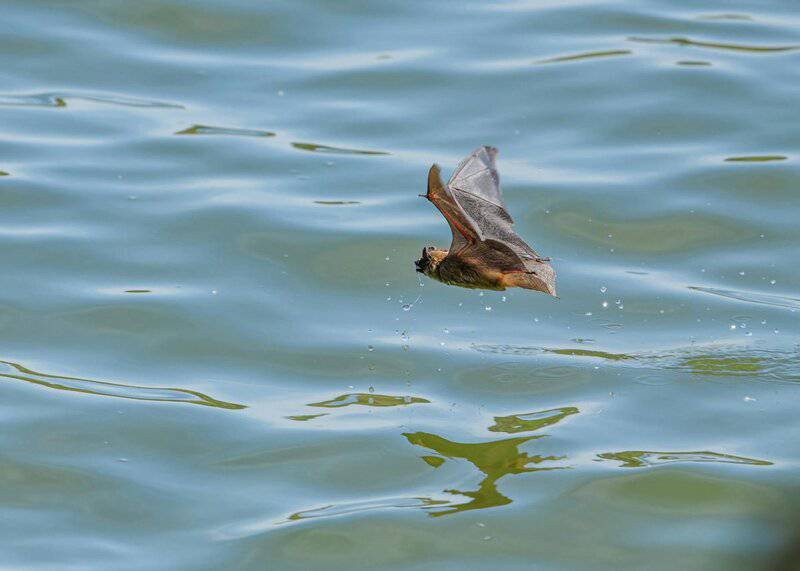
Bats, vital for ecosystems as pollinators and insect controllers, are restricted as pets due to their ecological importance and potential to transmit diseases like rabies. These nocturnal mammals play crucial roles in maintaining balance within their habitats, making their removal from the wild detrimental. Legal prohibitions aim to preserve their populations and protect public health. For comprehensive insights into bat conservation and their ecological significance, explore reports from organizations such as Bat Conservation International, which advocates for the protection and understanding of these essential creatures.
15. Otters

Otters, cherished for their playful demeanor, are illegal as pets due to their complex social behavior and need for expansive aquatic habitats. These semi-aquatic mammals thrive in environments that allow for swimming and social interaction with other otters, conditions that are difficult to replicate in a home setting. Legal restrictions help ensure their welfare and prevent the disruption of their natural populations. Animal welfare organizations, such as the International Fund for Animal Welfare, emphasize the importance of keeping otters in their natural habitats to protect their wellbeing and ecological roles.
16. Raccoons
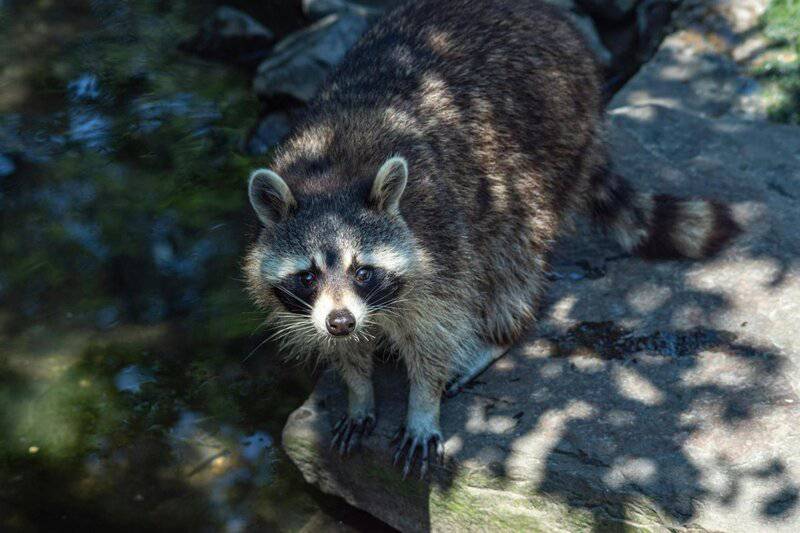
Raccoons, known for their adaptability and intelligence, are prohibited as pets due to their potential to carry diseases like rabies and their tendency to cause mischief. These nocturnal animals are highly skilled at adapting to various environments, which often leads them into conflict with humans when kept as pets. Their natural behaviors and dietary needs are difficult to accommodate in a domestic setting. For guidance on managing wildlife like raccoons, resources from the National Wildlife Control Operators Association offer valuable insights into humane and effective wildlife management practices.
17. Skunks
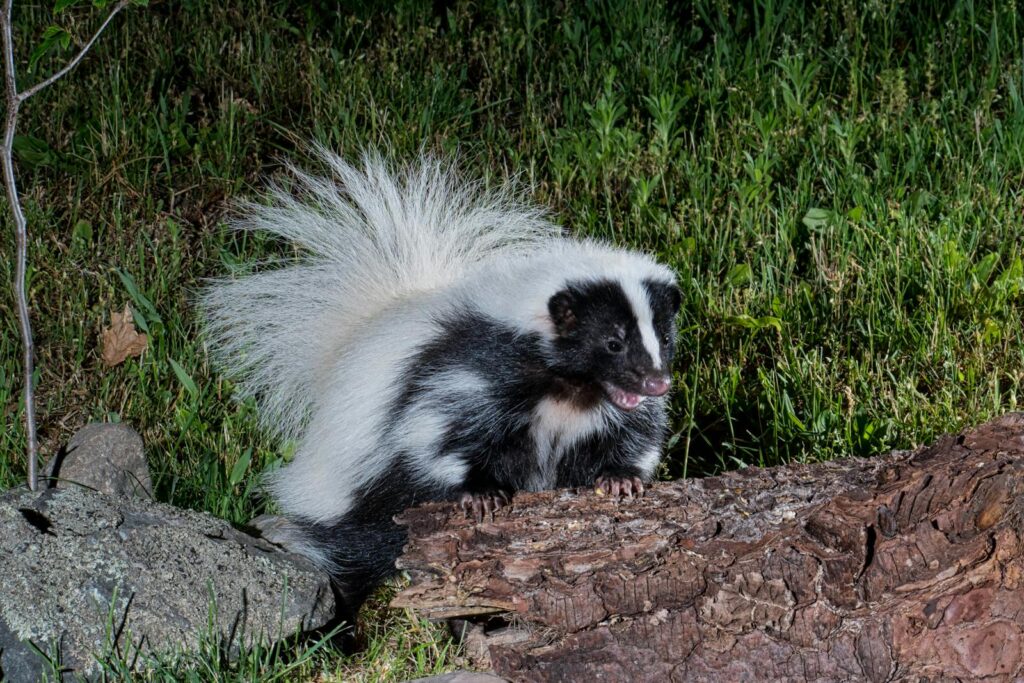
Skunks are banned as pets primarily due to their notorious scent glands, which can release a powerful and persistent odor as a defense mechanism. Beyond their pungent spray, skunks can carry diseases such as rabies, posing health risks to humans and other pets. These factors make them unsuitable for domestic life. Legal restrictions help prevent potential public health concerns and protect the animals themselves. For more on handling skunk encounters and safety, The Humane Society offers comprehensive animal control guidelines and advice.
18. Beavers
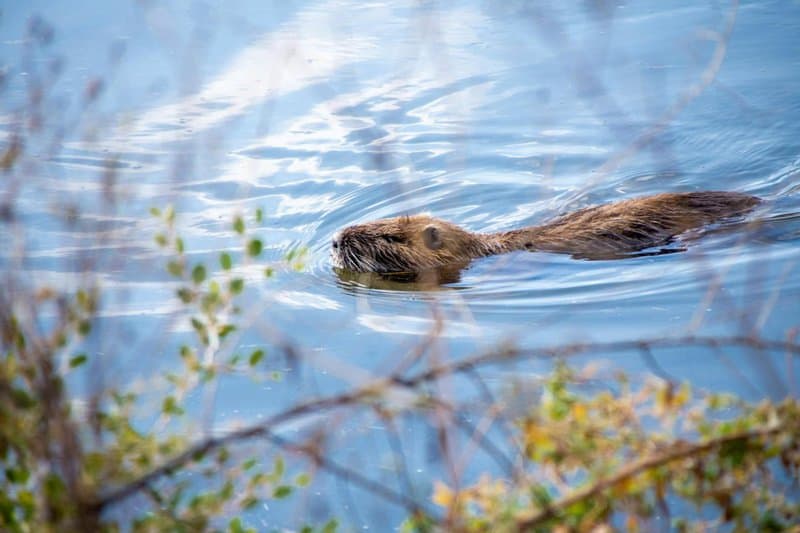
Beavers, renowned for their engineering skills, are prohibited as pets due to their profound environmental impact and requirement for aquatic habitats. These industrious creatures build dams, altering landscapes and creating wetlands that are crucial for biodiversity. Keeping them in captivity not only deprives them of their natural behaviors but also poses a challenge in replicating their complex habitat needs. Legal restrictions ensure their ecological roles remain intact. For insights into the beaver’s environmental significance, explore ecological studies available at Nature, which detail their contributions to ecosystem health.
19. Foxes
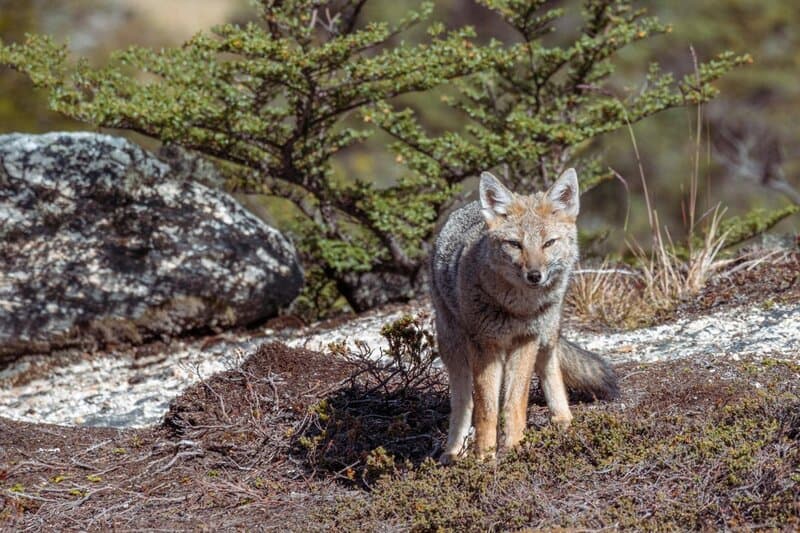
Foxes, with their mischievous charm and wild instincts, are generally prohibited as pets due to their behavioral tendencies and varied legal status across states. While they may resemble domestic dogs, foxes retain strong hunting instincts and require environments that cater to their natural behaviors. Legal restrictions aim to prevent issues related to their care and management. Opinions from wildlife experts, such as those found at Wildlife Online, emphasize the challenges of domesticating these intelligent creatures and the importance of maintaining their roles in the wild.
20. Hedgehogs
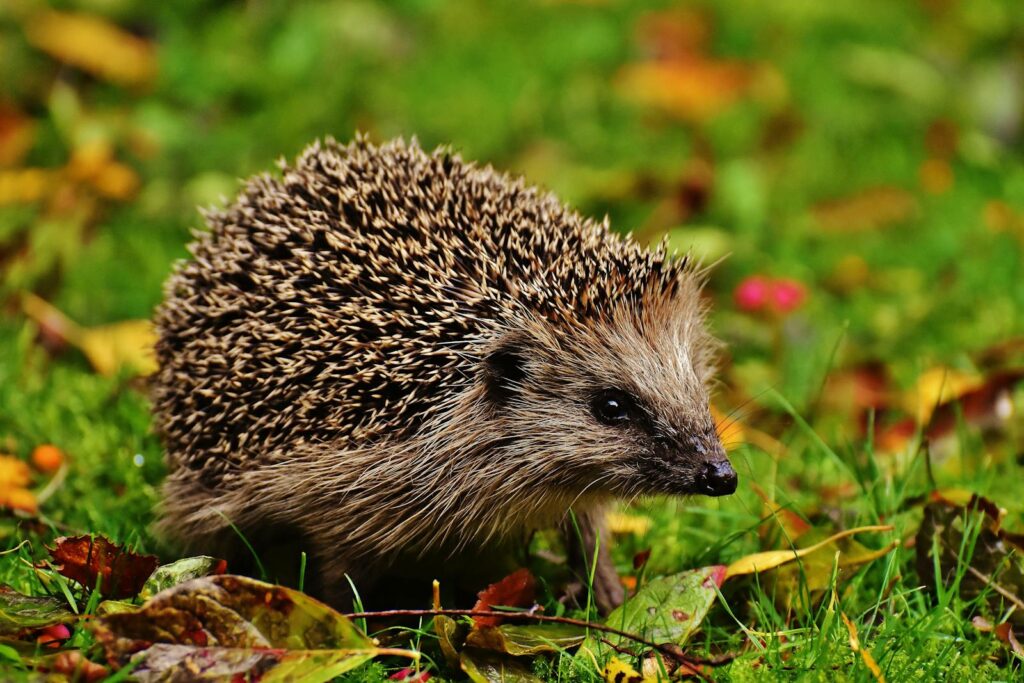
Hedgehogs, though often perceived as adorable pets, are illegal in some states due to their potential to spread diseases like salmonella. These small, nocturnal creatures require specific care, and their health can be challenging to manage in captivity without proper expertise. Legal restrictions help prevent potential public health concerns associated with improper handling and care. Veterinary health studies, such as those published by The American Veterinary Medical Association, provide insights into the risks and care requirements of hedgehogs, underscoring why some regions prohibit their ownership.
21. Sugar Gliders
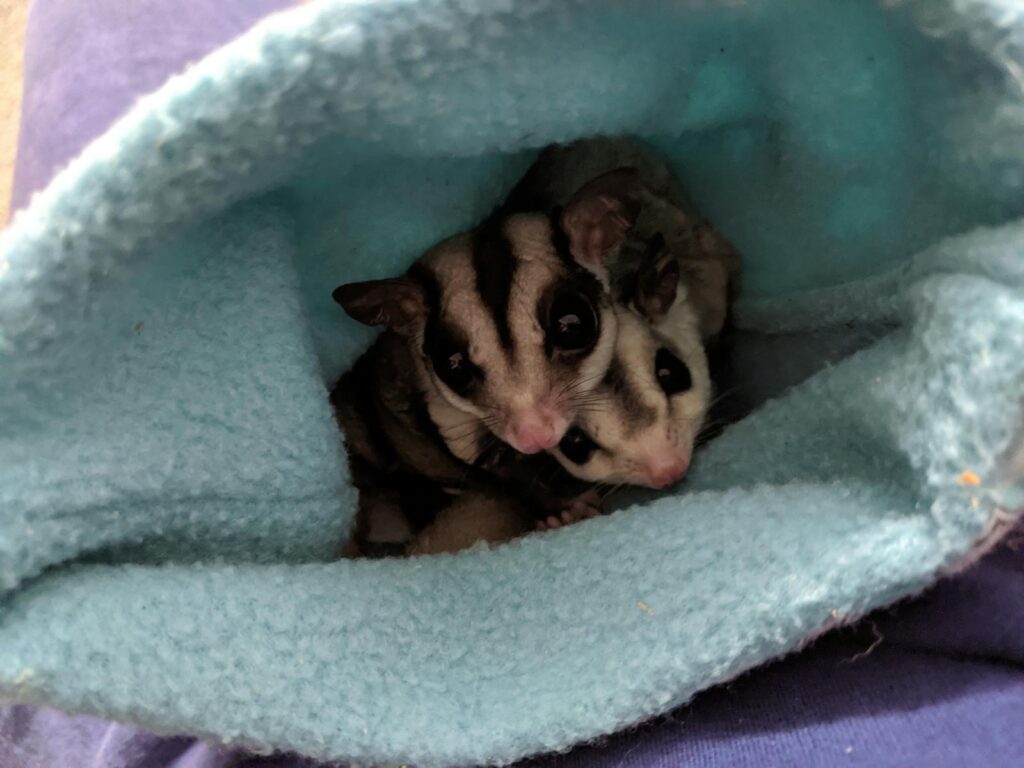
Sugar gliders, small marsupials with a nocturnal lifestyle, are banned in certain areas due to their specialized dietary and habitat needs. These social animals require a diet rich in fruits, vegetables, and proteins, and thrive in environments that mimic their natural arboreal habitats. Their active nighttime behavior can also be disruptive in a typical home setting. Legal restrictions aim to ensure their welfare and prevent neglect due to inadequate care. For comprehensive information on caring for exotic pets like sugar gliders, refer to resources such as the Exotic Pet Vet guides.
22. Prairie Dogs
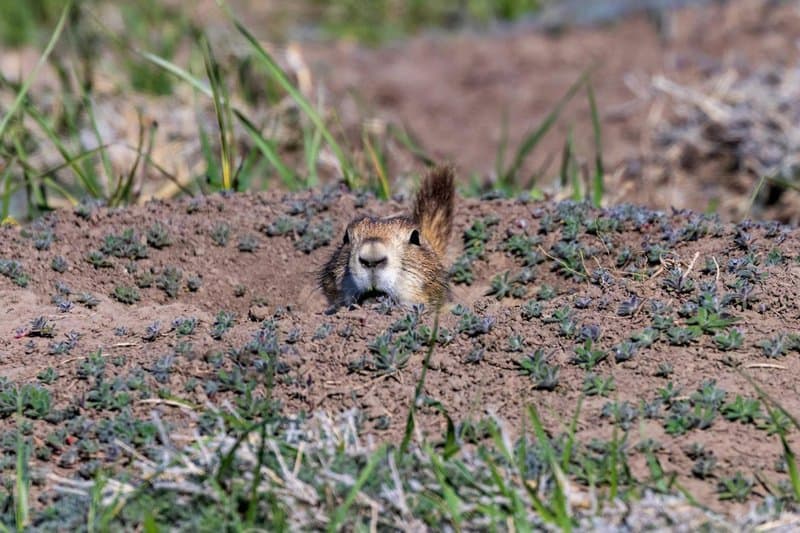
Prairie dogs are prohibited as pets in several areas due to their potential to carry diseases such as the plague and their significant ecological impact. These burrowing rodents play a crucial role in their ecosystems, but in a domestic setting, they can pose health risks and environmental concerns. Legal restrictions help protect public health and maintain the ecological balance in areas where they naturally occur. For insights into the management and ecological importance of prairie dogs, refer to wildlife management articles available through The Wildlife Society, which advocate for informed conservation practices.
23. Ferrets

Ferrets are prohibited in some states because of their potential to become invasive species if released into the wild. These energetic animals can disrupt local ecosystems by preying on native wildlife and competing with indigenous species. Legal restrictions aim to prevent ecological threats and ensure responsible pet ownership. Understanding these laws is crucial for potential ferret owners. For detailed legal resources and state-specific information on ferret ownership, visit the Animal Legal & Historical Center, which provides comprehensive guides and legislation summaries.
24. Pythons
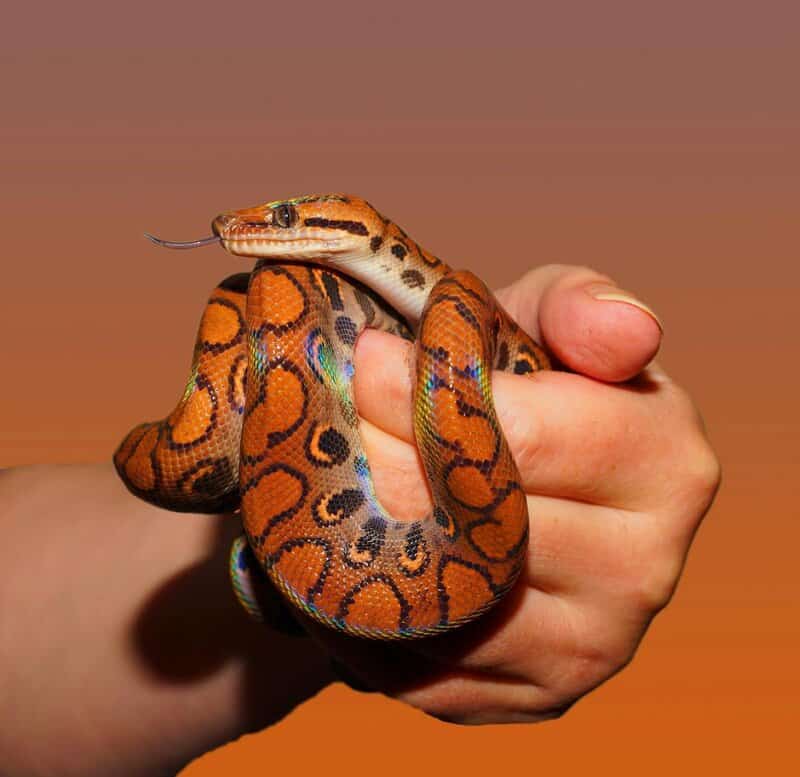
Pythons are subject to legal restrictions in many regions due to their large size and invasive potential, particularly in sensitive ecosystems like the Florida Everglades. These powerful constrictors can grow to considerable lengths, posing risks to local wildlife by outcompeting native species for resources. Laws aim to prevent ecological imbalances and ensure public safety. Herpetological research, such as studies from the Herpetological Conservation and Biology journal, provides detailed insights into the environmental impact of pythons and the importance of regulating their ownership.
25. Iguanas
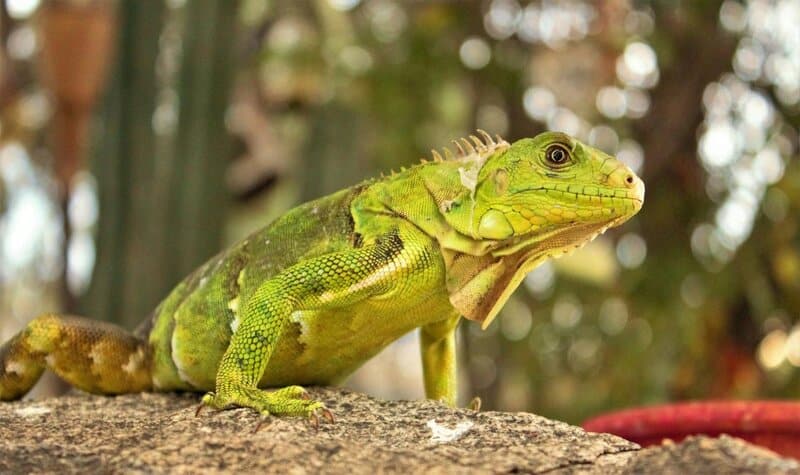
Iguanas are restricted in some areas due to their potential environmental impact and specific care requirements. These large reptiles can grow up to six feet in length and need a diet rich in leafy greens, which poses challenges for inexperienced owners. In regions like Florida, escaped or released iguanas have become invasive, threatening local ecosystems. Legal measures help prevent these issues and promote responsible ownership. For those interested in proper iguana care, resources like Melissa Kaplan’s Herp Care Collection offer valuable guidance on meeting their complex needs.
